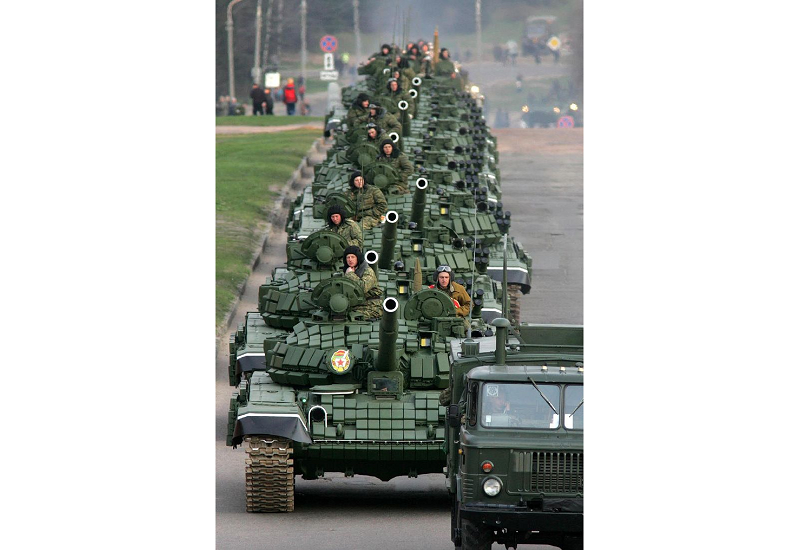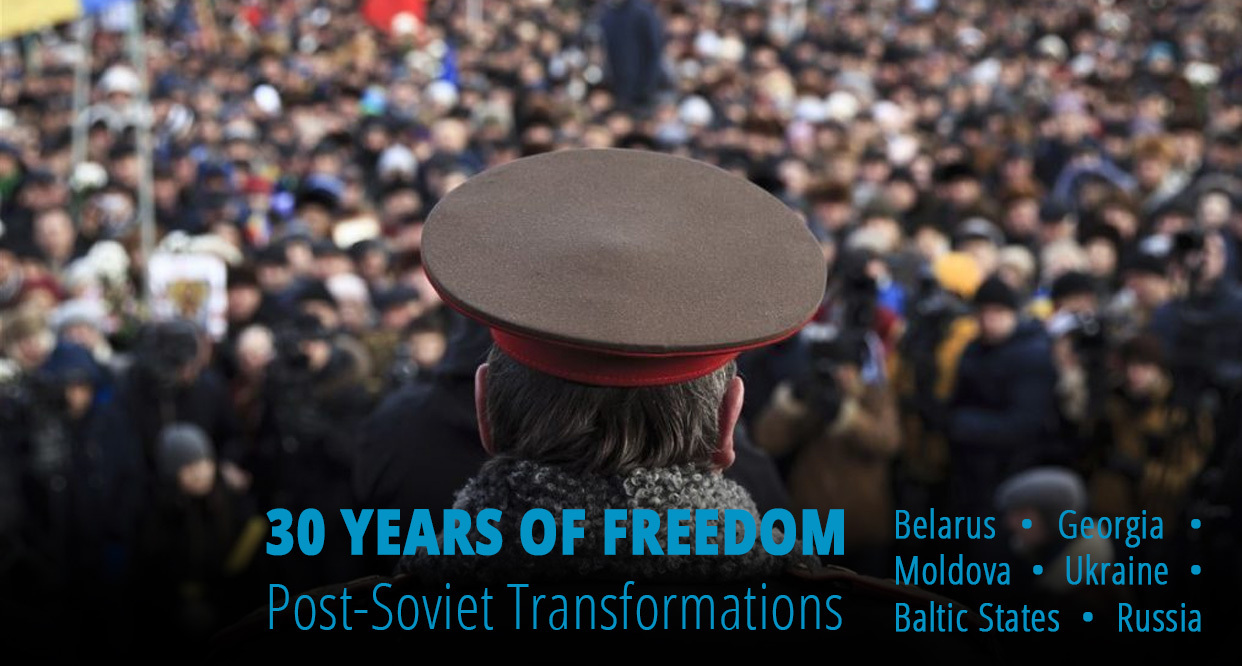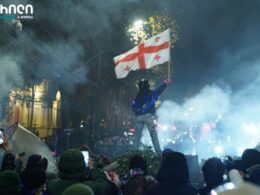Commenting on the negotiation process with the US, Russian Deputy Foreign Minister Sergei Ryabkov said Russia was ready to consider two options.
- The first one is discarding the "formula of the Bucharest summit" which had put Ukraine and Georgia on a membership track.
- The second is the US commitment to "never vote for Ukraine and other countries to join NATO."
Ryabkov's statement shows that Russia has narrowed down its much broader initial demands put forward a month ago.
Speaking on 19 January at the Valdai Discussion Club, Russian deputy FM Ryabkov said,
"This well-known formula of the 2008 Bucharest Summit that Ukraine and Georgia will become members of NATO, this should be excluded, this should be replaced by the understanding that this will never happen. Or, as an alternative, if the United States assumes unilateral obligations in a legally binding form that they will never vote for Ukraine and other countries to join NATO. We are ready to consider this option," he said according to TASS.
According to Ryabkov, Russia will do everything possible to diplomatically stop the ongoing integration of Ukraine into NATO. He believes that this process affects Russia's security interests.
Russia's demands month ago
A month ago, Russia's demands on the US were much broader. Russia had put forward its demands amid the buildup of the Russian troops near Ukraine, ongoing since fall 2021
to this day.
In late December 2021, the Kremlin submitted to the US two draft agreements with the US and NATO, more resembling ultimatums than treaties in tone and style, according to Moscow Times.
Back then, Russia's demands were:
- The United States should prevent NATO's further eastward expansion, denying accession to the former Soviet states;
- The US should establish no military bases in ex-Soviet non-NATO states and shut down military cooperation with them;
- NATO should exclude its further enlargement, including the accession of Ukraine and "other states";
- the Alliance should refuse any military activity on the Ukrainian territory, as well as in "other states of Eastern Europe, Transcaucasia, and Central Asia”;
- No NATO forces or weapons should be deployed in countries that joined the alliance after May 1997, i.e. the Baltic states and the former Warsaw-Pact countries;
- NATO should bar deployment of intermediate-range missiles in areas where they could reach the other side’s territory.
These initial demands boil down to three major points:
- no NATO expansion;
- no US and NATO activities in territories that Russia believes are in its sphere of influence;
- no NATO deployments in NATO countries near Russian borders.
Negotiations
In January, a series of West-Russia talks took place on the issue of Russia's demands of “security guarantees,” which Ryabkov had summed up as “NATO must pack up its stuff and return to the 1997 boundaries.”
On 10 January, US-Russia brought no breakthrough. Commenting on the meeting, Deputy US Secretary of State Wendy Sherman said, “We were firm… in pushing back on security proposals that are simply non-starters to the United States.”
Similarly, the NATO-Russia meeting in Brussels on 12 January didn’t bring any significant results too. NATO states rejected Russia's demands regarding non-expansion of NATO and the presence of the Alliance's troops on its eastern flank.
At the time, Russia had stated that it wouldn't compromise on its requirements and the Kremlin saw no reason to engage in a new round of talks with the US on security guarantees in the near future.
US Secretary of State Antony Blinken
and Russian FM Sergei Lavrov are going to meet in Geneva on 21 January. Ironically, it became known hours after Russia rejected fresh Ukraine talks unless the West responded to its demands.
Read more:
- Russia-West talks have ended in uncertainty. Now it's time to act.
- NATO said “no.” Outcomes of Russia talks with the West
- NATO and Russia agreed to talk more at Brussels talks
- Daily review: little agreement at NATO-Russia talks; 80 Ukrainian soldiers perished in 2021; Day of Political Prisoner
- NATO coordinates position ahead of meeting with Russia
- Daily review: “Difficult” US-Russia talks on “security guarantees,” Germany arrests hero of war against Russia
- Biden and Putin talk (again)
- Türkiye “ready” to mediate Donbas talks





